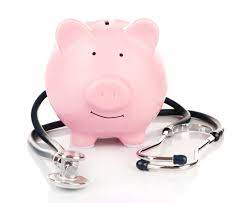Health insurance is an expensive investment, and most people are reluctant to make it, even if they are sure they will need it. After all, the premium of health insurance can soar to thousands of dollars every year, which makes health insurance look more like a luxury than a necessity.
But there is good news-you can use some little-known tips and tricks to lower your premiums.
Consider how much insurance you need.
When reviewing health insurance options, be sure to compare plans based on total cost rather than monthly premiums. This can make a real difference. Narrow your health insurance options based on the coverage you need. Find out which specific health services you need and compare health insurance options based on these services.

If you have children, you may need the most insurance. However, if your body is relatively healthy, you may only need catastrophic insurance, which is cheaper.
Compare Prices
Over 90% of health insurance plans in the United States are regulated by the federal government, which means that every state has the same plan. However, for the same plan in the same state, the price you pay can vary by hundreds of dollars, depending on where you bought it. This is why it is important to shop around at the best price.
Open a health savings account
A health savings account (HSA) is a savings account that you can use to pay for health care. If you have a high-deductible health plan, you can only contribute to HSA. This means that your deductible must be at least $1,400 for individuals and $2,800 for families.

Choose a plan with a high deductible.
High deductible health insurance plans (HDHP) have higher premiums than low deductible plans, but lower monthly premiums. Although high deductible plans may be a good option for saving premiums, they may also be difficult to save on out-of-pocket costs. High deductible plans may be a good way to save money up front, but experts recommend that people use these plans only if they have the financial means to pay large medical expenses without help.
Sign up for a health reimbursement account.
You can use HRA to pay for deductibles, copayments, and uncovered prescription drugs. If you have an HRA through your employer, you can use a personal health reimbursement account (HRA) as a supplement. These accounts require you to set aside funds to pay for your medical expenses, and you can receive this money tax-free when you retire.
Don't delay enrolling in health insurance.
If you do not re-register for the health insurance policy within 60 days after losing coverage, you may face a fine. Therefore, if there is any health emergency, please apply for health insurance as soon as possible.





